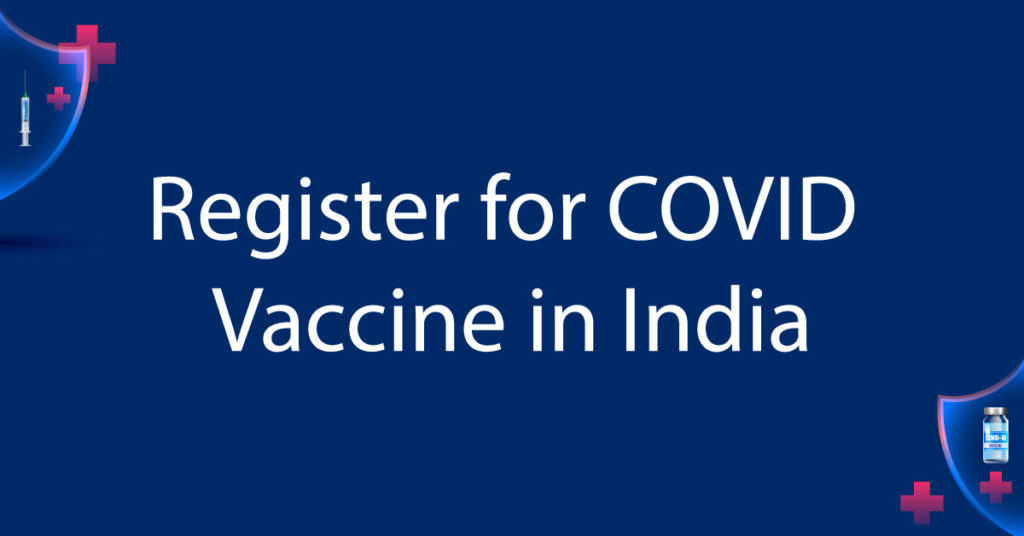The Drug Control General of India (DCGI) on Sunday granted emergency-use approval for two COVID-19 vaccines: Oxford University and AstraZeneca’s ‘Covishield’ and Bharat Biotech’s ‘Covaxin’.
This move by the DCGI paves the way for the approval of at least two coronavirus vaccines in the coming days, and the announcement of the largest vaccination drive that India has ever seen.
As the country now awaits the mega announcement over the vaccination drive, here’s everything you need to know about registration for corona vaccination in India.
What is the CoWIN system?
CoWIN (COVID-19 Vaccine Intelligence Network) is a comprehensive cloud-based IT solution for planning, implementing, monitoring and evaluating COVID-19 vaccination in India. From the national to the vaccinator level, the CoWIN platform has utilities for the entire public health system. The end-to-end system allows for the creation of users, registration of beneficiaries followed by planning, scheduling and implementation of the vaccination process.
The CoWIN will work on a real-time basis and will track both the beneficiaries and vaccines at the district, state and national level.
How to register for the COVID vaccine?
Common Service Centers would be utilized for self-registration and identity certification of the general population for the vaccination drive. Self-registration module for the same will be made available in the later phases of implementation.
To enrol for the vaccine, individuals will first need to self-register on the CoWIN website. Also, they will be required to provide photo identity by giving one of the following documents:
- Aadhar Card
- Pan Card
- Passport
- Driving License
- Health Insurance Smart Card (issued under the scheme of Ministry of Labour)
- Passbook issued by Bank/Post Office
- Pension Document
- MNREGA Job Card
- Voter ID
- Official identity cards given to MPs/MLAs/MLCs
- Smart Card issued by RGI
- Service Identity Card issued to employees by Central/State Govt./PSUs/Public Limited Companies
Individuals would have the option to either upload a photo identity on the CoWIN system, or they can pull the same from their existing DigiLocker account.
For authentication, you can select from one of the following methods:
- Biometric: With this, your demographic details in your Aadhar card will autofill the platform.
- OTP Authentication: An OTP will be sent to your mobile number that has been registered with your Aadhar card. Once the OTP Authentication is done, your demographic details as per the Aadhar will auto-populate.
- Demographic Authentication: You can also enter all demographic details manually and select Demo Authentication. A green tick will appear once you confirm the same.
Once done with registration, date and time will be allocated for the vaccination. No spot registrations will be accepted and only pre-registered beneficiaries will be allowed to proceed with vaccination.
Who will get the vaccine first?
Healthcare workers
As per the recommendation by the National Expert Group on Vaccine Administration for COVID-19 (NEGVAC), the vaccine will first be given to one crore healthcare workers working in both government and private hospitals.
This priority group has been further divided into subcategories – frontline workers, Integrated Child Development Services (ICDS) workers, nurses and supervisors, medical officers, paramedical staff, support staff and medical students.
The data for the same has been collected from the healthcare facilities and is being fed into CoWIN, a digital platform to be used to roll out and scale up the vaccination drive.
Frontline workers
Over two crore frontline workers employed with the state and central Police services, armed forces, civil defence organization, home guard, disaster management, municipal workers and revenue officials working with COVID-19 surveillance and other activities are next in line to get inoculated.
Workers associated with the state government and ministries of defence, urban affairs and housing will also get vaccinated during the first phase.
People aged above 50 years
This group is further divided into two categories: people above the age group of 60 and people between the age group of 50 and 60 with co-morbidities. The latest electoral roll will be used as a reference to identify the population under this category for the vaccination drive.
The calculation of age for this category will be based on the cutoff date of 1st January 2021, so anyone born on or before 1st January 2021 will be eligible for immunization.
Areas with high COVID-19 infection rate
States and Union Territories will have the flexibility to do priority phasing of vaccine roll out in geographical areas where the infection rate is high.
Remaining population
The remaining population – people below the age group of 50 with associated comorbidities such as cancer, diabetes, etc. and the remaining populace – will be vaccinated after the people in priority list are covered.
How has the vaccination team been arranged?
There will be a 5-member team which will have defined responsibilities in every session:
Vaccination Officer 1: In-charge for pre-checking registration status of beneficiary and photo ID verification before entering the waiting room/area.
Vaccination Officer 2: In-charge of authenticating documents in the CoWIN system.
Vaccinator Officer: In-charge for vaccinating the beneficiaries.
Vaccination Officer 3 and 4: In-charge of managing the crowd, monitoring for any AEFI symptoms and guiding non-registered beneficiaries.
How does the CoWIN system work?

- As mentioned earlier, only pre-registered beneficiaries will be inoculated at the session site.
- The Vaccinator officer and the Vaccination Officer 2 will use the vaccination module at the time of vaccination.
- Before giving the vaccine, Vaccination officer 2 will use the CoWIN app to verify that the beneficiary’s Aadhar authentication has been done as per the guidelines.
- After verifying the beneficiary details, the Vaccinator Officer will proceed with the vaccination process and Vaccinator officer 2 will update the vaccination status to ‘Vaccinated’ in the application.
- The supervisors will have access to the list of beneficiaries to be vaccinated on any given day in the CoWIN application. The supervisors will use the list to monitor the session sites on the designated day of vaccination.
Where will you get vaccinated?
The following vaccine sites have been allocated for different priority groups:
Fixed session site
Fixed session sites include health facilities – both government and private – where either a medical officer or a doctor is available.
Outreach session site
Outreach session sites will consist of sites other than health facilities such as schools, community halls, etc.
Special mobile teams
Special mobile teams will be for remote, hard-to-reach areas and international border areas. These teams will be planned by district administrations as part of their operational plan.
The procedure that needs to be followed at the vaccination centre
There will be three separate rooms at the vaccination centre to complete the step-by-step procedure of vaccination – one for waiting, the other for observation and the last for vaccination. This will help the vaccination team in managing the crowd and also ensure that social distancing is being followed.
After receiving the vaccine shot, each volunteer will be monitored for 30 minutes. This is to record any after-effects or symptoms on the candidate.
As mentioned earlier, the vaccination team will comprise five members. With adequate requirements and space available, an additional officer may be included in the team to create a session for 200 beneficiaries.
Guidelines for the session centre
The vaccination officer must keep the vaccines and diluents inside the vaccine carrier until a beneficiary comes for vaccination.
All the adequate measures must be taken to avoid exposing the vaccine carrier, vaccine vials or ice packets to direct sunlight.
All the states and UTs will allocate the vaccine from one manufacturer to district. This will be done to avoid mixing of different COVID-19 vaccines in a centre.
COVID-19 vaccine tracking
The CoWIN system has been designed for end-to-end-tracking of vaccines and will link every does to the individual beneficiary.
As part of the CoWIN system, all the details of the COVID-19 vaccine will be fed into the electronic database, and vaccine doses along with the batch number will be allocated to each vaccination site using the electronic system only. This will support tracking of the vaccine vial until it is given to a beneficiary.
COVID-19 vaccination in India: FAQs
Is a COVD-19 vaccine schedule anytime soon?
Yes, many vaccines in the country are undergoing Phase 3 trials which will be completed in the next few days. Once done, the government will be looking forward to giving regulatory clearance and launching the vaccines.
Will everyone be given the vaccine simultaneously?
Based on the potential availability of vaccines, the government has selected various priority groups for the vaccination program. The first group includes healthcare and frontline workers and the second group will comprise people above the age of 50 and those under 50 with comorbid conditions.
Is it mandatory to take the vaccine?
Vaccination for COVID-19 is voluntary. However, it is advisable to receive the complete vaccine schedule for protecting oneself against the virus and also to limit its spread.
How many doses of the vaccine needs to be taken by the individual?
Two doses of vaccine, at an interval of 28 days, needs to be taken by an individual to complete the total vaccination schedule.
Can a person presently having COVID-19 infection be vaccinated?
Individuals with confirmed or suspected COVID-19 infection may increase the risk of spreading the virus to others at the vaccination site. Therefore, the government has advised infected individuals to defer vaccination for 14 days after symptoms resolution.
Is it necessary for a COVID recovered person to take the vaccine?
Yes. It is advisable to receive the complete schedule of the vaccine for a COVID recovered person as this will help in developing a strong immune against fighting the disease.
When will antibodies develop?
Protection level of antibodies will generally develop two weeks after receiving the second dose of the COVID vaccine.
Are there any side-effects of the COVID vaccine?
As with other vaccines, individuals will have some degree of side-effects after taking the COVID-19 vaccine. These could be in the form of mild fever, pain at the site of vaccination, body aches, etc.






